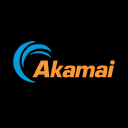Verizon-Edgecast Deal Poses Pricing And Margins Threat To Akamai
Verizon’s (NYSE:VZ) recent decision to buy out Edgecast could potentially shake up the CDN (content delivery network) industry and increase competition for the market leader, Akamai (NASDAQ:AKAM). After numerous rumors, Verizon confirmed in a press release Monday, December 9, that it has signed a definitive agreement to acquire CDN start-up Edgecast for an undisclosed sum. [1] The deal, which is expected to close in early 2014, not only strengthens one of Akamai’s rivals, but also potentially ends Verizon’s reselling partnership with Akamai.
The impact on Akamai may not be overnight given that the company is the biggest in the CDN market and has a very well-diversified customer base. But the loss of Verizon as a reseller for its enterprise CDN services is pretty much a given, once Edgecast’s CDN is able to adequately replace Akamai’s services. What is unclear (and will remain so until Verizon gives an official confirmation) is the timing of the expiry of the contract that Verizon has with Akamai and the value that it holds for Akamai in revenue terms. If we go by industry expert Dan Rayburn’s estimate of $75-100 million for this year, Akamai could be looking at a revenue loss of as much as 6% in the near term. [2] This assumes customers choose to switch from Akamai’s service to Verizon, which may well not happen. The key here is whether Verizon continues to resell Akamai’s enterprise services.
See our complete analysis for Akamai here
- Akamai Stock Has Seen Little Change Since 2021. Will A Q3 Earnings Beat Drive The Stock Higher?
- What To Expect From Akamai’s Q2 Earnings?
- Cloud Business In Focus As Akamai Reports Q1 Results
- Will Akamai’s Cloud Computing Push Pay Off?
- Up Almost 6% Last Month, Can Akamai Continue Its Run?
- Here’s Why Akamai Stock Has Failed To Outperform The S&P Since 2017
Impact On Industry Pricing And Margins
More than the immediate revenue hit, however, what is more concerning for Akamai is the growing trend of customers and partners looking to gain more control over their ecosystem by building their own CDNs. Earlier this year, we saw Netflix take its business away from Akamai by deciding to build a CDN of its own. Now, with Verizon’s Edgecast acquisition, it is becoming clearer that with rising video consumption, some customers and partners are seeing value in taking the content delivery part of their ecosystem in-house, to save on costs and have a greater control over the end-user experience. In order to retain customers, Akamai may have to make some concessions on pricing and take a hit on margins.
Verizon’s backing will give Edgecast the scale to cut down on network costs and get aggressive on pricing, which might drive down the market price for video content delivery. It will take time and investment, though, as Edgecast (said to have revenues this year of ~$100 million) at present lacks scale. In the last couple of years, we have seen the CDN pricing decline stabilize, but if Verizon makes a strategic decision to get aggressive on pricing, Akamai could face top line pressure as some of its old contracts come up for renewal in the coming years. Akamai has done well in recent years to counter the impact of CDN commoditization by increasing its focus on premium value-added services such as dynamic site acceleration (DSA), front-end optimization (FEO) and security solutions, which have grown in importance to account for almost 60% of its total revenues currently. However, Verizon’s reach and resources could give Edgecast’s fledgling PCI compliant value-added platform the required boost to emerge over time as a more formidable rival to Akamai in the VAS space and eventually pressurize its high-end margins.
Threat To Akamai’s M&E business
Additionally, Akamai could be threatened by Verizon’s aggressive posturing in the media and entertainment space, where Edgecast’s acquisition gives the carrier the final missing piece in the video platform it is putting together to attract studios and broadcasters. This is a market Akamai does not address. And Verizon is looking to build on its FiOS TV content relationships and the recent acquisition of Uplynk to create an online video streaming platform that allows broadcasters to control their ecosystem end-to-end – from content generation to distribution. Verizon hopes to achieve this by using Uplynk to streamline the process of encoding and uploading the live feed while Edgecast’s CDN seamlessly completes the last-mile task of delivering the video to the end user. This all-in-one service could be a better value proposition to broadcasters than the current Akamai model of forging together partnerships with third-parties such as Brightcove and iStreamPlanet to provide the rest of the streaming services. [2]
On the brighter side for Akamai, the Verizon-Edgecast deal gives the CDN leader an opportunity to expand its reseller deals with carriers such as TELUS, Deutsche Telecom and Pacnet, that are currently partners with Edgecast but may be reluctant to resell a Verizon service going forward. Building better relationships with carriers may not prove to be a big revenue driver for Akamai but has a positive impact on costs and network performance, which could be key to Akamai’s margins as the business environment gets increasingly competitive in the coming years.
Understand How a Company’s Products Impact its Stock Price at Trefis
Notes:- Verizon Plans to Acquire EdgeCast Networks, Verizon PR, December 9th, 2013 [↩]
- Verizon’s Acquisition Of EdgeCast Isn’t Good For Akamai, Here’s Why, Dan Rayburn, December 9th, 2013 [↩] [↩]
